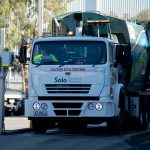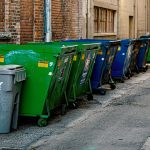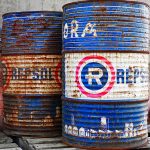Debunking Recycling Myths: What You Can and Cannot Recycle
Recycling is a crucial practice for environmental sustainability. However, many common misconceptions about recycling can hinder efforts to reduce waste and conserve resources. By debunking recycling myths and understanding the correct recycling practices, individuals can significantly contribute to a greener future. This article aims to shed light on some of the most prevalent recycling myths and provide accurate information to guide responsible recycling habits.
Myth 1: All Plastics Are Recyclable
One of the most persistent recycling myths is the belief that all plastics are recyclable. While many types of plastics can be recycled, the reality is more complex. The recyclability of plastic depends on its type, which is often indicated by a small number inside a triangle on the plastic packaging.
Not all types of plastics are widely accepted by recycling programs. Soft, flexible plastics like plastic bags, cling wrap, and bubble wrap are often difficult to recycle and can contaminate recycling streams. It’s essential to check with your local council or waste services provider to determine which types of plastics they accept.
Myth 2: Paper with Food Stains Cannot Be Recycled
While food-stained paper may not be ideal for recycling, it doesn’t necessarily mean it’s completely unrecyclable. Small amounts of food contamination can often be tolerated by recycling facilities. However, heavily soiled paper, such as greasy pizza boxes or heavily food-stained napkins, should be discarded in the general waste bin. To maximise the recyclability of paper, it’s best to remove excessive food waste before recycling.
Myth 3: You Can Recycle Everything with the Recycling Symbol
The recycling symbol, often depicted as a triangle with arrows, is a common sight on various products. However, it’s important to note that this symbol doesn’t guarantee that a product is recyclable. Many products with the recycling symbol may not be accepted by local recycling programs due to limitations in processing technology or market demand for recycled materials.
To ensure accurate recycling, it’s important to consult local recycling guidelines or check the specific instructions on product packaging.
Myth 4: You Don’t Have to Rinse Containers Before Recycling
While rinsing containers before recycling is not always strictly necessary, it can significantly improve the quality of recyclable materials. Food and liquid residue can attract pests, contaminate other recyclables, and hinder the recycling process.
To optimise recycling efforts, it’s recommended to give containers a quick rinse to remove excess food and liquid. This simple step can help ensure that recyclable materials are processed efficiently and effectively.
Myth 5: It’s Better to Put Something in the Recycling Bin Than in the General Waste Bin
While it’s commendable to have good intentions, putting non-recyclable items in the recycling bin can actually harm the environment. When contaminated recycling is sent to processing facilities, it can disrupt the recycling process, reduce the quality of recycled materials, and even lead to entire batches of recyclables being sent to landfill.
To avoid this, it’s important to only recycle items that are accepted by your local recycler. If you’re unsure about the recyclability of a particular item, it’s better to err on the side of caution and dispose of it in the general waste bin.
Recycling Tips to Maximise Your Impact
Know that we have debunked five of the most common recycling myths, let’s look at how you can make the most of your recycling efforts:
Know Your Local Guidelines
- Check with Your Council: Different regions of Australia have different recycling programs. Familiarise yourself with your local guidelines to ensure that you’re recycling correctly.
- Understand Contamination: Certain materials, like food-soiled paper or plastic bags, can contaminate recycling batches. Avoid these items unless your local council or facility specifically accepts them.
Sort Your Recyclables
- Separate Materials: Separate different types of recyclables, such as paper, cardboard, glass, and plastic, to facilitate efficient processing.
- Keep it Clean: Remove food and liquid residue from containers to prevent contamination and odour.
Flatten and Bundle
- Compact Cardboard: Flatten cardboard boxes to save space and make them easier to transport and recycle.
- Bundle Paper: Bundle newspapers and magazines to reduce their volume and improve efficiency.
Avoid Bagging
- Loose Items: Place loose recyclables directly into the recycling bin. Bagging can hinder the sorting process.
Reduce, Reuse, Recycle
- Prioritise Reduction: Reduce consumption of single-use items to minimise waste.
- Reuse Items: Give items a second life by repurposing or donating them.
- Recycle Responsibly: Only recycle items that are accepted by your local program.
By following these tips and staying informed about the latest recycling guidelines, you can significantly contribute to a more sustainable future.
In Conclusion
Through knowledge and following best practices, individuals can make a significant contribution to environmental sustainability, and by recycling correctly, we can reduce waste, conserve resources, and protect our planet for future generations. Remember, every small action counts. Let’s work together to build a more sustainable future.
Adelaide Waste and Recycling Centre
Confused about what you can and cannot recycle? Check out our blog for more articles about recycling or contact us via telephone +61 8 8295 5077 or our website.
Adelaide Waste and Recycling Centre
Our friendly operators are available at the AWRC if you need to clarify any further information.


